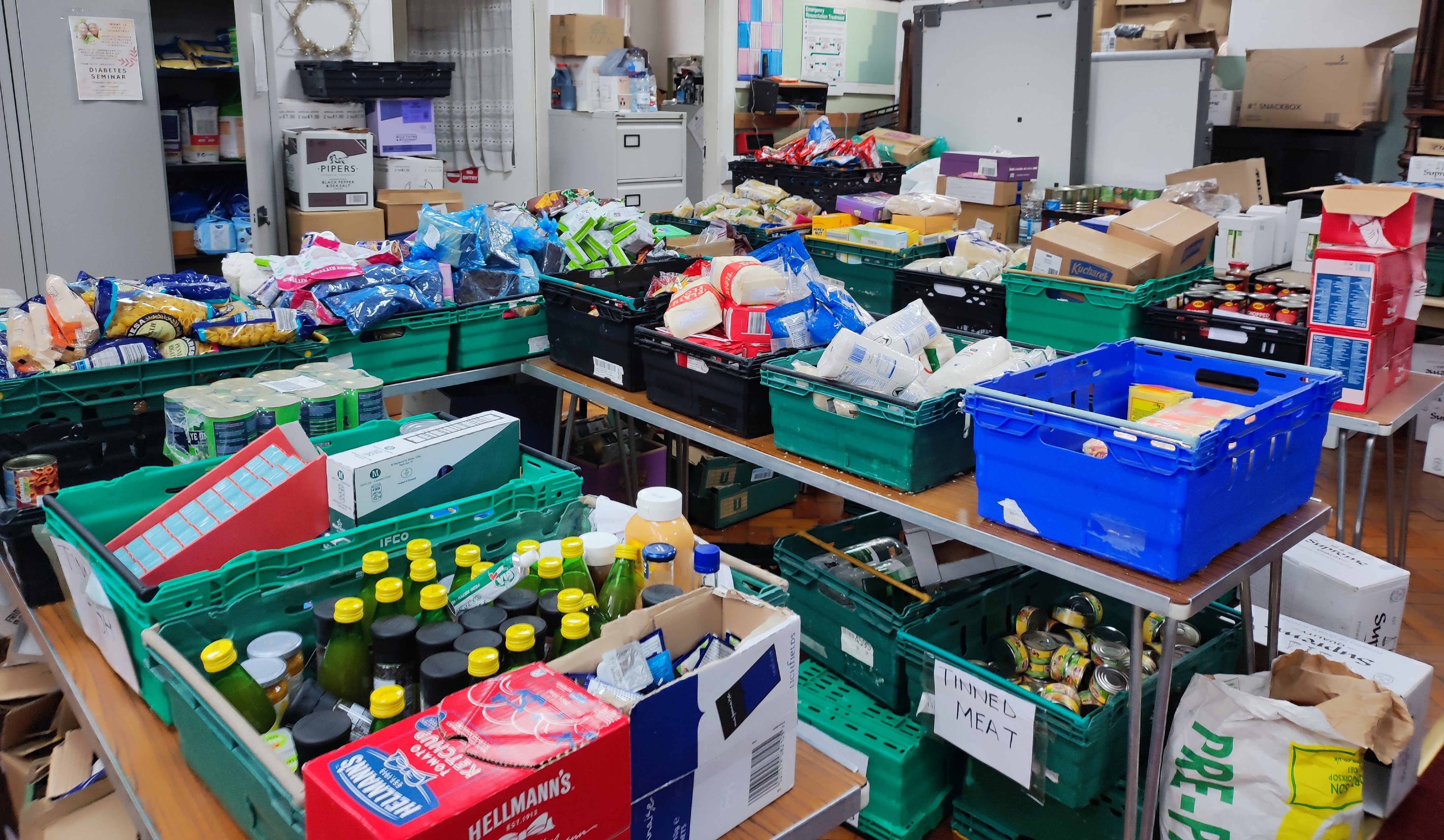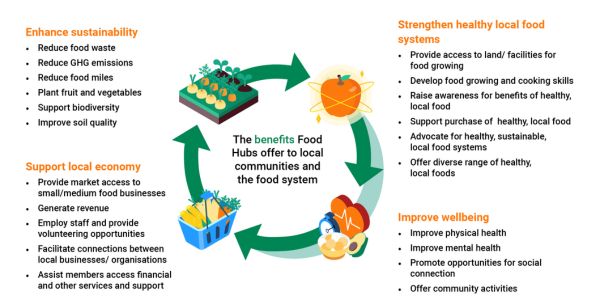Research project
Food hubs for Food Security, Health, Inclusive Growth and Sustainability
- Start date: 1 November 2021
- End date: 29 July 2023
- Funder: Research England
- Value: £104,000
- Partners and collaborators: Foodwise Leeds City Council Global Food and Environment Institute Policy@Leeds
- Primary investigator: Dr Effie Papargyropoulou
- External co-investigators: Sonja Woodcock, Foodwise Leeds

Background and Project Rationale
1 in 5 UK households experience severe or moderate food insecurity (i.e. they are unable to get enough, nutritious food in socially acceptable manner, or they are uncertain where the next meal would come from). In response to increasing food insecurity, particularly in urban contexts, Food Hubs have proliferated both in numbers and in the roles they perform. Although there is not a universal definition for Food Hubs, their primary function is to gather food from growers and suppliers, and distribute it to consumers, often operating within an explicit set of ethical priorities.
Food Hubs perform various activities such as food aid or surplus food redistribution, food pantries, social supermarkets, food skills training, community engagement via cafés and business training and advice. Some Food Hubs aim to offer a local and/or more sustainable food supply chain, others aim to improve access to food and deliver wider social, economic and environmental benefits. Food Hubs can reduce household food insecurity; develop more direct links between producers and consumers with the potential to reduce greenhouse gas (GHG) emissions and costs from reduced food miles and food waste; help local, small businesses to reach markets; and build ‘social capital’ and strong communities. Although these benefits are increasingly being recognised, there is no strong evidence base to build a convincing case for policy support and funding.
Project Aim
This research aims to (i) evaluate the benefits that Food Hubs bring to food systems and communities in terms of food security, sustainability, health, resilience and justice, and (ii) provide the necessary evidence base to make the case for policy support and funding. This support and funding can help Food Hubs expand their offering, strengthen local food systems, and increase food security and sustainability of the overall food system.
Approach
We carried out an evidence review, a survey, in depth interviews, and sites visits. We developed a Food Hub Impact Evaluation Toolkit and we used it to evaluate 10 participating Food Hubs. We then produced 10 Best Practice Case Studies focusing on the ‘replicable’ and ‘scalable’ elements of Food Hubs that would be useful across the UK food system. We produced a Policy Brief with recommendations for UK policy and food actors. We will host an evidence dissemination & knowledge exchange event in Leeds amongst Food Hubs, food actors and Local Authorities.
Impact
The project will:
- Support Food Hubs improve their offering
- Enhance community cohesion & reduce inequality
- Strengthen local food systems
- Increase food security, health, sustainability, justice and resilience across the overall food system
Publications and outputs
Food Hubs Impact Evaluation Toolkit (PDF format)
Food Hubs Impact Evaluation Toolkit (excel format)
Webinar recording: Food Hubs for Food Security, Health, Inclusive Growth and Sustainability
Blog: Food hubs support communities against food poverty
Food Hubs Case Studies from Leeds
The multiple roles of Food Hubs: more than just fighting food poverty
Downloads
Co-designing an impact evaluation tool for food hubs in the UK


